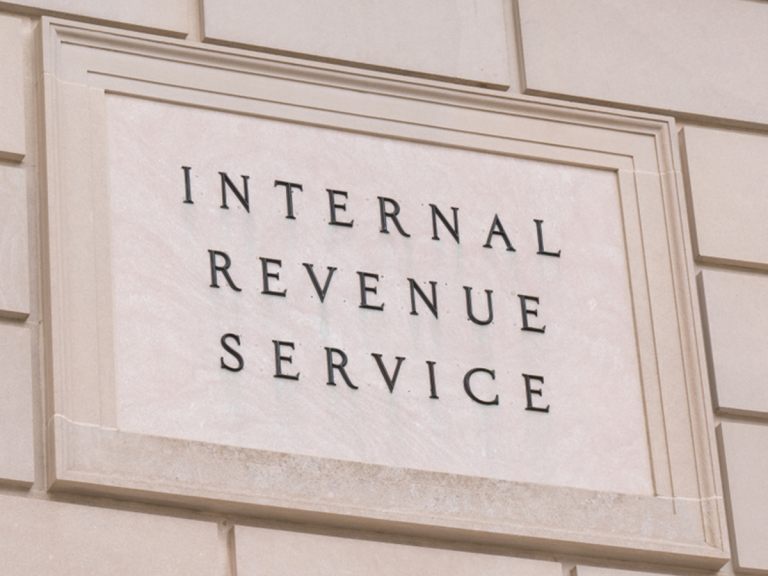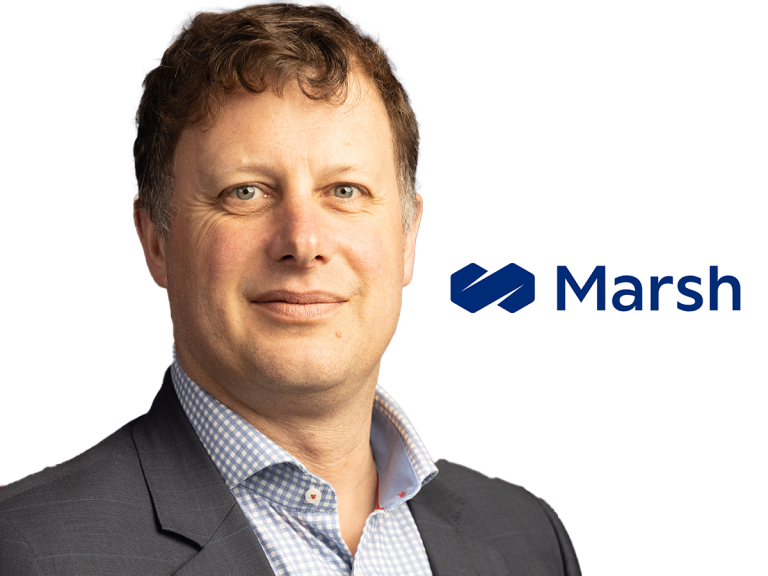Domicile Wars: Premium volume and capital remain key indicators for Hawaii’s growth
No significant changes expected to IRS 831(b) regulation
The decision by the Internal Revenue Service (IRS) to include micro captive regulation in its 2024-2025 priority guidance shows that the IRS is still planning to “move forward” with its proposed regulations, according to Bailey Roese, partner at Dentons, Bingham Greenebaum.
In April 2023, the IRS “obsoleted” its notorious Notice 2016-66 and issued new proposed regulations that identify certain micro captive transactions – those making the 831(b) tax election – as “listed transactions” and other micro captive transactions as “transactions of interest”.
Earlier this month, the IRS announced plans to release the text of the 2024-2025 priority guidance, which includes plans to finalise its micro captive regulations.
“We thought they would finalise them at some point, but we were not sure if they had adjusted their timeline since last year, when they indicated they wanted to complete it by the end of 2023,” Roese told Captive Intelligence.
Some in the industry thought the IRS might have purposely been drawing out the process to cause doubt in the space, which has led to a number of micro captive closures.
“It seems like they are still pushing forward,” Roese added. “They’ve crossed off some significant priorities from their to-do list, which frees up resources to focus on this and move it forward.”
It is important to note that although the IRS has included micro captive regulation in its 2024-2025 priority guidance, it does not automatically mean the proposals will be finalised by 30 June 2025.
Chaz Lavelle, partner at Dentons, Bingham Greenebaum, said that some seem to be misinterpreting the guidance on this point.
“Some believe this indicates that the regulations will be finalised by 30 June, but I do not think that’s necessarily the case,” he said.
“It simply means they will continue to work on them. They might finish them tomorrow, or it could be after 30 June, at which point they would either include them in next year’s plan or decide not to proceed.”
It is also not yet certain how these proposals will be defined and whether it will be in line or materially different from the original proposals which drew strong criticism from the industry when first published.
“The industry submitted a substantial number of robust and well-researched comments,” Roese said.
“The IRS has the opportunity to consider these submissions and respond with acknowledgment, stating they agreed or reconsidered their position after discussion.”
However, Roese believes the likelihood of the IRS making large changes based on industry comments is quite small.
“When they put forward these proposed regulations, they have already conducted their internal research and developed their position,” she said.
“They typically solicit feedback from stakeholders within the IRS to reinforce their stance.
“Based on prior experience, once regulations are finalised, there usually are not significant changes made in response to the comments received.”
Labuan IBFC: Asia’s Leading Domicile for Captive Insurance

The jurisdiction offers a complete ecosystem for captives
Captives as a viable form of self-insurance
Captive insurance has enjoyed significant popularity in recent decades. In its simplest form, a captive is a wholly-owned subsidiary created to provide insurance to its non-insurance parent company (or companies).
Captives are essentially a form of self-insurance whereby the insurer is owned wholly by the insured. Because the owners are also the insured, they can exert much greater control, especially regarding the types of risks insured and the decision process surrounding underwriting, as well as loss control, operations, and management.
Labuan IBFC offers a comprehensive captive ecosystem
Geographically situated off the coast of Borneo in Malaysia, Labuan International Business and Financial Centre (Labuan IBFC) has been operating as Asia’s premier international financial hub for almost 35 years. It remains an attractive financial intermediation hub, currently hosting the operations of more than 800 licensed financial institutions.
Governed by a centralised regulator, the Labuan Financial Services Authority (Labuan FSA), a statutory body under the purview of the Ministry of Finance, Malaysia, the centre functions within a comprehensive legal framework. The jurisdiction provides a cost-efficient operating base in a currency-neutral operating environment which is home to 235 insurance and insurance-related entities.
As at the first half of 2024, 74 captives have been licensed, generating a total premium volume of more than half a billion within this year itself. Indeed, the Labuan captive sector has experienced exponential growth with premiums growing at 8% per annum since 2019.
Labuan IBFC complies with global standards and insurance best practices, with regulatory requirements being continuously reviewed. In creating a business-friendly proportional market environment, the International Association of Insurance Supervisors (IAIS) core principles and captive guidance are observed and rigorous efforts to adhere to the Insurance Capital Adequacy Framework (ICAF) have provided insurers with the needed financial buffers and an advanced risk management approach to better weather external adversities.
This balancing strategy is key to Labuan IBFC operating as a regional business hub, especially for businesses looking to expand into Association of Southeast Asian Nations (ASEAN) countries or out of the region.
A diverse array of captive solutions and programmes
As Asia’s premier international financial hub, the centre offers a range of self-insurance structures and solutions be it in conventional, digital and Shariah-compliant versions.
Innovative captive solutions include pure/single owner captive, group, association, master and subsidiary rent-a-captive, cell and multi-owner captive, and Protected Cell Companies (PCCs). Labuan IBFC is also the only jurisdiction in Asia that provides for the PCC structure with roughly 15 PCCs licensed to date.
This broad range of solutions offers businesses maximum flexibility, resulting in sustained interest from investors.
Labuan IBFC’s approach to developing its self-insurance sector involves collaborations with risk management communities and international industry associations, targeted briefings, and ensuring our presence at flagship captive events.
Dedicated to highlighting captives as the ‘IT’ solution for risk management, Labuan IBFC’s flagship event, the Asian Captive Conference (ACC), was held on September 19, 2024 at the Sime Darby Convention Centre, Kuala Lumpur with the theme Asian Anchors: Leading the way in Captive Innovation.
The captive-centric conference was attended by over 200 attendees globally which included regulators from Cambodia, Hong Kong and India’s insurance industries; professionals, investors and service providers from the global captive industry and representatives from government agencies who participated in an exchange of ideas as well as opinions on the challenges, benefits, and trends in the captive segment.
An award-winning captive hub
Labuan IBFC clinched the Highly Commended International Domicile awards both in 2023 and 2022. The jurisdiction also garnered the Top International Captive Domicile award in 2021.
The awards were bestowed by the European Captive Awards. Labuan IBFC was the only jurisdiction from Asia to be shortlisted in this category, alongside other leading global domiciles, cementing Labuan IBFC’s growing recognition as a global captive domicile.
Road to 2025 and beyond
Leveraging on the business optimism introduced by the Strategic Roadmap 2022-2026 initiatives, Labuan IBFC is constantly looking to maintain its competitive advantage. The centre’s roadmap highlights captive insurance as one of the key segments for the jurisdiction and features key initiatives charting the path for the development of the jurisdiction as both a regional and global captive hub.
Marking a significant milestone for innovation in the captive industry, new captive omnibus guidelines were issued in 2023. The new policy expanded the risks by indirectly underwriting insurance interest risks. Additionally, clarity was provided for the allowance of separate cells under the same PCC to conduct either general or life insurance business.
The roles and responsibilities of PCCs, master-rent-a-captives and intermediary-owned rental captives, as well as other captive structures and operational requirements were also expanded upon.
This change shows the growing maturity and technical ability of the Labuan captive sector to handle more complex risks. As a result of this policy shift, Labuan has recently added five new External Rent-A-Captive (X-RAC) entities, which provide coverage for various areas, including general liability, product liability, cyber liability, extended warranties, and earthquake insurance.
Captives have shown tremendous potential in mitigating connected risks, which are not limited to cybersecurity, supply chain, environmental and geopolitical risks. In a nutshell, Labuan IBFC is confident that the role of captives is set to expand and evolve at pace.
Preparing for the soft market key to a strong long-term captive
While the captive market has seen unprecedented numbers of new formations over the past four years, it is important for owners to assess how to position the captive as the market softens.
Speaking on the opening panel at the HCIC Forum 2024 in Hawaii Amy Evans, executive vice president at Intercare Holdings, Inc and David Beyer, director of risk management at Alaska Airlines, explained that the reasons for initially establishing a captive may not be the same reasons it continues to bring value as the market cycle evolves.
While some lines such as property remain particularly problematic in the United States, and continue to prompt new captive set-ups, other markets are softening and the panel explained risk managers need to be thinking ahead and preparing.
“We are still somewhere in a hard market,” Evans said. “No one thought the last soft market would last as long as it did, but the beauty of having a captive is weathering the market cycle. We now see different lines going through different cycles.”
Beyer said while he prefers the captive not to exit lines of insurance completely, he does continue dialogue with the commercial market and work with it to adjust the programme as more capacity and coverage returns.
“We want to make sure we still have a foot in the door and continue to have dialogue with reinsurers and other insurance partners,” he explained.
“We encourage them to maximise coverage at new terms and we use the captive to push the market.
“If the policies in the commercial market are not covering all the things we need, then we turn to our captive. We incubate that risk and then present that back to the commercial market to see if they will support.”
Helen Kim, senior vice president and account executive at Old Republic Risk Management, agreed with Beyer that keeping in contact with the commercial market and maintaining relationships is key.
“Don’t burn any bridges in the hard market,” she said.
“The last time we had a soft market, what we saw was clients who had acquired companies with captives looking at closing the captive they had inherited. It is important to stop and consider if that is the right long-term decision.
“And every time there is a hard market, we get a lot of enquiries from single parent captives about fronting for new lines. We ask them what appetite they are comfortable with and see what programme we can build around that.”
Evans said while the captive’s value may be apparent and straight forward to communicate to senior leaders during a hard market, the real challenge to justify its existence can emerge if rates stabilise and commercial capacity returns.
“If you formed the captive in anticipation of a hard market, then the purpose and mission of the captive now might be very different,” she explained. “If you are the single parent owner, make sure all your leadership is engaged.
“You need to talk about whether you want to pull the captive back and find new capacity in the commercial market when the pricing is right.
“Think well in advance about what you want to keep hold of, what you might want to give to the commercial market. As the soft market approaches, which layers you might want to fill.”
Member owned PCH Mutual has advantage over competitors
The member driven model of PCH Mutual provides the captive with an advantage over its competitors, according to the risk retention group’s (RRG) CEO and president, Julie Bordo.
The Vermont-domiciled RRG was formed in 2004 and has more than 3,800 members in 47 states across the US.
PCH Mutual provides professional and general liability cover to its members.
“We’ve grown quite a bit, and we are in the non-medical residential care space,” Bordo told Captive Intelligence.
“That means care for vulnerable adults and in this day and age it’s a growing business because we have such a large aging population.”
Bordo said the RRG has an “unprecedented retention rate” and has not had a lot of competition that it could not “starve off”.
“As a member owned and driven entity, we offer a lot of things that our competitors cannot offer,” she said.
Bordo highlighted how PCH Mutual recently built documentation software, which is being offered as a free member benefit.
“It’s a real impediment for our members in terms of cost to not be able to have formal documentation software and that leads to less than stellar documentation of the care journey of the residents,” she added.
Bordo said the RRG is also building features that will operationalise other aspects of its risk management.
“We’ve engaged with a company and helped from its inception to provide a unique way of training senior living staff and communicating about the end-of-life experience and things that are prevalent that can be real generators of risk in long term care.”
However, Bordo said that innovation does not always have to include technology.
“A core principle of our company is that human connection is the source of well-being, and we are always striving to do different things to create connection, whether it’s between caregivers and residents, or between or our entity and our members,” she said.
“We have engaged with startups to create stories around the residents and telling their story, and then having that socialised amongst the caregivers and the other people in the community.”
Marsh appoints Thomas-Ferrand head of captive insurance as Charnley set to retire
Will Thomas-Ferrand, international practice leader at Marsh Captive Solutions, will assume leadership of the intermediary’s captive insurance business on 1 January 2025.
He will take on the new role as Ellen Charnley, president of Marsh Captive Solutions retires at the end of 2024.
In his new position, UK-based Thomas-Ferrand will report to Pat Donnelly, president, Marsh Specialty and Global Placement.
“Will’s knowledge and experience in the captive sector across various geographies, in addition to his unwavering dedication in supporting our captive insurance clients, makes him the ideal person to lead Marsh’s captive business going forward,” said Donnelly.
“I want to personally thank Ellen for her tremendous leadership over the last seven years and wish her well in her retirement.
“Ellen, Will, and our leadership team will be working closely together over the next few months to ensure a smooth and seamless transition.”
During his 20-years at the broker, Thomas-Ferrand has held various roles of responsibility within Marsh’s captive business.
He has previously led Marsh’s captive business in Malta and spent seven years largely working with U.S. clients in Bermuda. Most recently, Thomas-Ferrand has been heavily involved in Marsh’s push to make the UK a viable and attractive captive domicile option.
“Under Ellen’s leadership, Marsh’s captive capabilities have grown into a global network of experts that support our clients in navigating the captive insurance landscape, regulatory changes, and market dynamics,” said Thomas-Ferrand.
“I look forward to leading our highly successful team as we continue to champion captive insurance and alternative risk transfer solutions around the world.”
Blue Ocean Reinsurance makes three hires as part of growth strategy
Cayman Islands-based Blue Ocean Re has hired Nico Kleine Punte to oversee the group’s accounting operations, in addition to appointing Derek Shanahan as senior vice president and account executive, and Nancy Manyange as reinsurance accountant.
The company said these hires are an integral part of the Blue Ocean Re’s ongoing strategy for staffing in its growth areas.
Blue Ocean Re was formed earlier this year and provides reinsurers and larger complex captives in Cayman with tailored solutions, guidance, and strategies to help optimise their risk management.
Punte has over a decade of experience navigating the Caribbean insurance and reinsurance market.
Having held senior positions at PwC, Island Heritage, and BF&M Group, he has a strong understanding of reporting requirements across multiple jurisdictions.
“Nico’s expertise in financial reporting and his extensive industry experience will be pivotal in supporting our next phase of growth,” said Graham Mackay, president and CFO at Blue Ocean Re.
“His insights will strengthen our operations and bolster our ability to meet the needs of our clients especially as those Clients look to different accounting bases and treatment to echo their diverse and increasingly complex requirement.”
Shanahan will be focusing on the firm’s (re)insurance management portfolio and has over 15 years of experience in insurance and risk management, previously holding senior roles at Aon and ENI.
Manyange will support the reinsurance accounting and compliance function of the firm.
“We are excited to welcome Derek, Nancy, and Nico to our growing team,” said Adrian Lynch, CEO of Blue Ocean Re.
Their industry knowledge and unique skill sets are essential as we continue to attract and retain key talent whilst expanding our service offerings within the reinsurance and complex captive (re)insurance sectors.”
Lynch previously told Captive Intelligence that there was a gap in the Cayman Islands insurance market for Blue Ocean Reinsurance Group.










